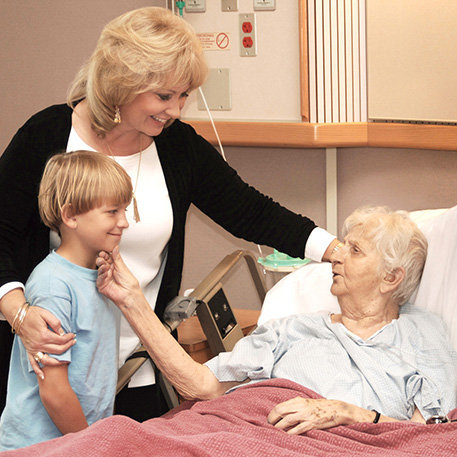By Jeanette Pham, ARNP-BC
I enter the Intensive Care Unit (ICU) and find my patient, a frail older gentleman admitted two weeks earlier for respiratory distress. He has been on life support since admission with no realistic hope of getting him off the ventilator. His family is around his bedside, coaxing him to get better and stronger.
As part of the Palliative Care Team, I am asked to speak to the family. I inform them about the gravity of the situation. Talk about options such as discontinuing life support or proceeding with a tracheostomy. One option will result in certain death and the other will allow the patient to live out his remaining life in a nursing facility. He will be hooked up to a ventilator and fed by a tube inserted in his stomach. There are no good options to present to the family.
His wife of 43 years tells me that they have not talked about end of life care. They have not prepared a living will. In passing he has mentioned that he would like a cremation service for himself, but nothing in regards to health care has ever been discussed. She is at a loss as to what he might have wanted. His children feel that he might want to be to be taken off life support and pass away peacefully. His wife is not so sure.
Woody Allen once said, “I’m not afraid of death, I just don’t want to be there when it happens.”
I think we can all relate to this. We can easily and comfortably talk about the fact that we will one day die. However, the thought of suffering and the act of dying is much scarier for us to consider so we avoid the uncomfortable conversations surrounding end of life care.
This lack of planning and communication is sadly realized in our Emergency Departments and ICU’s regularly when I meet with patients having to contemplate how aggressively they want to be treated.
I also meet families who find themselves at a loss when faced with a myriad of medical decisions they are required to make on behalf of their loved ones, leaving them feeling inadequate and insecure about the decisions they are rendering.
If you have not discussed medical decision making with your loved ones, now is the time to complete a Living Will. You may see this for several resources available online or better yet, consult an estate planning attorney who will guide you and your family through the tough conversations.
I tell my patients that we have a choice in how we live but we also have a choice in how we die. Conversations about end of life care, although seemingly scary and morbid, can bring you peace of mind knowing that your wishes will be honored by your loved ones. It is also a gift you give your loved ones who will be able to make confident decisions on your behalf. These decisions may include the kind of funeral services you want such as Asian funerals, along with the burial spot, casket material, or if you prefer cremation instead. Many prefer cremations from a funeral and cremation services parlor because they are usually more affordable and they give family members the option to divide the ashes.

